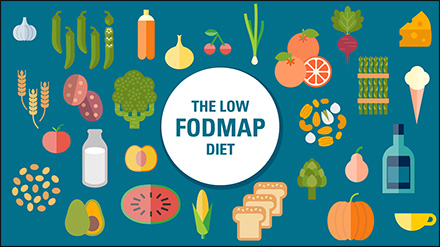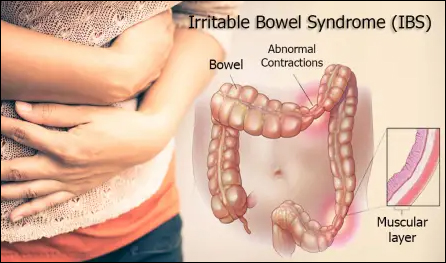ABSTRACT
When diet is right, there is no need for medicine but when diet is not right, medicine is of no use. It is very rightly said because diet influences a major portion of our health. Working on our health will include incorporating healthy food elements in our diet. Some items are considered as non permitted foods while some are not allowed to be eaten because they cause allergic reactions. For example, certain foods are high in fat content which may lead to cardiovascular problems. Thus, it is required to work out a plan for what one should eat and also what not. The most important thing that is involved in preventing or curing any major illness is diet. A good diet will form the basis for good health and a healthy lifestyle. For example, people who have IBS are advised to consume diet food items which are low in carbs and high in protein. So what is the FODMAP diet, let us discuss in detail through the following article.

WHAT IS FODMAP DIET?
FODMAP are certain types of carbohydrates that are difficult to digest for the body. FODMAP is an acronym for Fermentable Oligosaccharides, Disaccharides, Monosaccharides And Polyols. FODMAPs are short chain carbohydrates which are not digested properly and travel to the large intestine where they are then fermented by the gut bacteria. Fermentation is a process of producing acids and gases in the intestines which leads to bloating, abdominal pain and distension. Thus, this problem is known as FODMAP intolerance or malabsorption syndrome. This will result in various difficulties faced by the patient which may include pain, gas, bloating, diarrhea, abdominal pain and abdominal distention. The FODMAP diet is designed for the patients suffering from the condition of IBS (irritable bowel syndrome). As IBS (irritable bowel syndrome) is related to digestion related issues, this FODMAP diet plan will help to improve their symptoms up to some extent. Let us know the concept of FODMAP diet in detail.
LOW FODMAP DIET
The FODMAPs are believed to draw water into the gut or the digestive tract, which in turn will result in a feeling of bloating. If someone consumes it very often, this may accumulate in the digestive tract and ferment. The various types of carbs present in your diet are as follows-
- Fructans - Fructose is found in various edible items including Garlic, Onion, grains such as barley, rye, wheat, etc.
- Fructose - Fructose is a simple form of sugar which is found in various food products such as Honey, Fruits, Corn syrup, etc.
- Galactans - Galactans are found in large amounts in legumes such as Beans, Lentils, Soybeans, etc.
- Polyols - Polyols are sugar alcohol, for example sorbitol, mannitol, etc. It is found in a variety of fruits and vegetables such as Apples, Avocado, Figs, Cherries, Peaches, etc.
Restricting these above said articles from your routine diet may impart multiple health benefits which will be discussed as follows.
BENEFITS OF LOW - FODMAP DIET & IBS
The digestive issues such as gas, bloating, constipation and diarrhea were managed up to some extent and thus improved the quality of life of the patient. FODMAP diet can present remarkable benefits to the ones facing various digestive issues or low digestive strength. The health benefits of following a low FODMAP diet can be observed in the patients suffering from IBS (Irritable bowel syndrome). It has helped to improve the health condition along with the administration of appropriate medicines. IBS (Irritable bowel syndrome) is known to affect a lot of people with global incidence estimated to be 11.2% . IBS (Irritable bowel syndrome) is a condition of unknown etiology in most of the cases, so it is very beneficial to follow this FODMAP diet plan to improve the condition of the digestive system of the body. This Routine of FODMAP diet may also yield good results on the psychological state of the body.The IBS (Irritable bowel syndrome) is moreover related to stress related concern, hence an overall improvement in the quality of life can be observed. The condition of IBS (Irritable bowel syndrome) can be managed well through the administration of ayurvedic formulations. The various beneficial ayurvedic formulations will be described as follows.
HERBAL REMEDIES BY PLANET AYURVEDA FOR IBS (IRRITABLE BOWEL SYNDROME)
Planet Ayurveda is providing various formulations of natural herbs such as pitta balance, kutajghan vati, digestion support and sanjivani vati compiled in a pack namely IBS care pack. These ayurvedic formulations are prepared using authentic ways and provide great results in improving the condition of IBS (irritable bowel syndrome). The formulations are prepared strictly according to the procedures described in the samhitas (classical texts) and therefore are very effective in promoting the health of the patient and managing the diseased state effectively. The products beneficial for improving the condition of IBS (irritable bowel syndrome) are described as follows -
IBS Care Pack
- Pitta Balance
- Kutajghan Vati
- Digestion Support
- Sanjivani Vati
PRODUCTS DESCRIPTION
1. Pitta Balance
Pitta balance are capsules prepared by planet ayurveda. It contains various beneficial ayurvedic components such as mukta pishti (Calcium compound from pearl), giloy satva (Tinospora cordifolia), etc. This beneficial composition of ayurvedic components help in balancing the pitta dosha of the body. It helps to improve the gut health and provides soothing relief to the body. Pitta balance also helps to soothe various kinds of burning sensation from the body.
Dosage: One capsule twice a day.
2. Kutajghan Vati
Kutajghan vati is being prepared by Planet Ayurveda. It contains natural extracts of beneficial ayurvedic herb Kutaja (Holarrhena antidysenterica). It helps to regulate bowel movement. It is pungent and astringent in taste and thus helps to pacify pitta and kapha dosha from the body. Therefore improving the overall state of the body.
Dosage: Two tablets two times a day.
3. Digestion Support
Digestion support capsules are being prepared by Planet ayurveda. It contains a combination of beneficial ayurvedic components such as haritaki (Terminalia chebula), amla (Embellica officinalis), pippali (Piper longum), etc. As the name suggests, It helps to support and improve digestion. This will help to manage various digestion related issues such as bloating, indigestion, etc. One such condition which can be effectively managed through digestion support capsules is IBS (irritable bowel syndrome).
Dosage: One capsule two times a day.
4. Sanjivani Vati
Sanjivani vati is a very effective ayurvedic formulation. It comprises various ayurvedic herbs such as pippali (Piper longum), giloy (Tinospora cordifolia), bhallataka (Aconitum ferox), vacha (Acorus calamus), etc. This will promote the digestive process and will lead to the depletion in various digestion related concerns such as indigestion, etc. This combination in sanjeevani vati will also help to manage the condition of IBS (irritable bowel syndrome) effectively.
Dosage: Two tablets two times a day.
CONCLUSION
In a nutshell, it can be concluded that following the low FODMAP diet plan will yield very fruitful results for the health of the individual. The people who are suffering from IBS (irritable bowel syndrome) and desire a healthy digestive system can include the concept of FODMAP in their daily routine diet. The diet plays a very essential role in the well being of the individual and maintaining a healthy diet will help to stay healthy.











